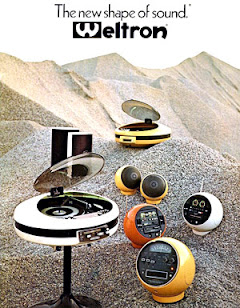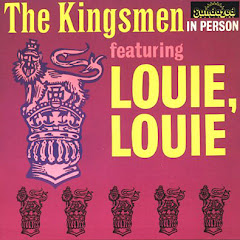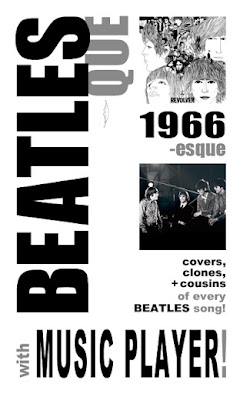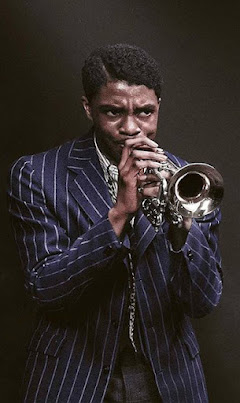"Justice at its best is power
correcting everything that stands against love."
-Dr. Martin Luther King, Jr.
I think the Civil Rights Movement was the best thing that ever happened to America, because it forced us to redeem ourselves. And it still is.
I grew up in the South and Midwest during the Civil Rights years and their aftermath. It challenged everything about my world and deepened my appreciation of humanity. Not a single day passes where the lessons learned are not affecting my perceptions, my outlook, or my aspirations. What is right nowadays stems from their moral paths, what is wrong tends to come from where any of us have lost the way. It's on each of us to make it better for each other. Selflessness brings us into the better angels of our nature. This is my psalm of love to my heroes, the bravest of the brave.
When you look back at the black and white photos of the tense events of the civil rights struggle in the '50s and '60s, like those shot by Charles Moore, there is a strangely brutal clarity. It seems like all artifice strips away leaving only hate and heroism. There is no theatre. There's only that queasy moment when something terrible is happening, when someone is doing wrong to someone, or recklessly trying to stand up in the face of danger. It is immediate, it's serious, it's real. A black woman cringing from a swung baseball bat. People slammed to the ground by the high-pressure firehoses of Alabama firemen. State Troopers charging church marchers with batons through tear gas. College students bludgeoned by horseback cops. And this was America.
There is a sickness so terrible in those frames, it chills the heart. Studying those snapshots and films, you look in the faces of the racist cop, the klanswoman, the corrupt governor, and you can perhaps also see their fear...of the modern, of change, of the truth. They look like sad relics not quite grasping that their hold is slipping, that critical mass is tiding against them. That every wrong they've ever done is coming up for account.
Hindsight is one thing, but living through that revolution was far more intense; it was painful, personal, and ongoing. And there was really nothing black and white about any of it. Black And White was just ink on a copy page, photos on newsprint, flickers on a television. It was the medium for conveying this moral war, but the reality was too complex for polar absolutes. Those shocking events were actually an alarmingly clear mirror showing the spectrum of our neglect. It ripped up laissez-fair dismissals about the reality of racism to shreds. It stripped away the firewalls that we used to separate it from our lives. Most of all, it forced us to question our national identity, and our personal character. Were you really what you said you were, who you thought you were? Where did you stand, and why? This was no civics lesson or some marketing campaign. This was the new true reality. Not shopping, not cruising, not the cinema. Those images and stories radically challenged how you behaved and what you believed in.
This was a new era where the political was a personal as it gets. Who was the Enemy here; was it the Klan South, the segregationist politicians, outmoded laws? Or also benign ignorance, local injustice, personal acts? Racism was as pervasive in all regions of the country and society as the South. People may have been carefully segregated by opposing terms like Black or White, male or female, Christian or heathen. But that aritifice stripped away when you had to stand at the mirror and face who you really were inside. The truth was that the real enemy was the ugliness in the human heart. There was no Us and Them. There was only each of us having to atone for any flaws in our own daily actions going forward. The moral struggle for the soul of the nation had to happen ultimately within each of us.
Part of the pain of living in the South and Midwest was seeing that poison directly in the ones you loved, in yourself. It's easy for someone to stand outside of an area and point out cardboard villains. It was another thing to live there and see the loved ones you trusted -who put church above all else, were wise and kind, who raised you- also believing in the same cruel hatred that compelled Sheriff James Clark to violently assault protesters. Another thing then to find some of these seeds in yourself and weed them out. Facing these truths left you feeling like a smashed windshield after a collision. It called into question your faith in love itself. How could these very moral people teach such immoral attitudes? How could they be Christian while excluding everyone they were afraid of? The sadness was compounded by watching these people you respected -who cared about family, led decent lives, worked hard every day- then having their sad fears twisted into hate for personal power by men in suits: pastors, police, politicians. Who could you believe in anymore?

-Dr. Martin Luther King, Jr.
Rosa Parks was tired. She'd worked hard all day and she didn't want to give up her seat on the bus. The law said she should but the law was immoral. By trying to hold on to her dignity in one small moment, Rosa took a stand that changed everything. People stepped forward to stand with her, and more, and more. Now we all had to make decisions on what was better for everyone, even if the written law was unequal to the task.
You could instead choose an honest love, a compassionate outlook, a giving hand, that left hate and hypocrisy behind. The Civil Rights Movement forced you to make a choice. Often between relationships and principle, selfishness and selflessness, between the past and the future, repression or progress. It was the hardest break of all but it was necessary for the soul.
Dr. King never succumbed to hate. He steadfastly remembered that his enemies were just people who could still be reached, befriended, forgiven. Resorting to brutality or hatred only dehumanized any of us. He put all his faith in human dignity, and in the world's support when they saw it being assailed. He was right to and always will be. No one could see the bombing of the church which killed four little girls and not be moved on the deepest level. King believed foremost in our humanity, that we would come through for another in pain. This redemptive love ennobled our nation and inspired us to be better people.
When a flash flood hits, it's pretty overwhelming and dramatic. Then it seeps down out of view, only to flourish seeds in the future. The 1960s and the empowerment ethos ignited by the Civil Rights Movement were like a flash flood worldwide.
Before, the mainstream culture at large had been strictly for the Included. TV ads and shows, churches, schools, and industry were very good about reminding everyone what those parameters were, and how you did or didn't fit into them. But in the biggest generation ever, that left a lot of ostracized people to meet each other and bond together. There was nothing black or white about any of them, they were like a prism of possibilities; Ban The Bomb activists, Folk protestors, Rock hedonists, Jazz boppers, ecologists, vegetarians, student uprisers, international dissidents, disillusioned soldiers, young college women, banned writers, progressive teachers, pacifist clergy, migrant workers, repressed voters, closeted gays, starving artists, fashion forwards, philosophers, shafted unions, poor people...the list was limitless. No one had a monopoly on pain. Its universality connected them. By sharing common grievance they began to see an end to limitations when they pooled their strengths. That's the true '60s...the Empowerment era. En masse, their alienation created a sort of sub-nation, a counterculture. This humanist movement's mantra was freedom, in the sense of personal emancipation.
There's a clear throughline from the Civil Rights movement to Farmworkers' rights, the Paris revolts, Prague Spring, the Counterculture, Feminism and ERA, Chicano pride, AIM, Solidarnosc, Eastern European liberation, ecology, Apartheid's end, and Gay rights. They are all the seeds that grew from the flood that Rosa Parks unleashed that fateful day she made her stand.
For his humane efforts, King was called "an extremist" by conservative attackers. Though never elected to the office, Martin Luther King was the moral President of the United States...and he still is.
"Why have we substituted the arrogant undertaking of policing the whole world, for the high task of setting one's own house in order?
For the evils of racism, poverty, and militarism to die, a new set of values must be born.
Our economy must become more person-centered
than profit- and property-centered."
-Dr. Martin Luther King, Jr., 1967
Let's keep going forward together.
©
Tym Stevens
See Also:
•
REVOLUTION! - A 'Fight The Power' Music Player
•
SHAKE AND FINGER POP! Soul Music and the Interior Truth, with Music Player!
•
"I Fought the Law and I Won!" - The Crickets > Bobby Fuller > The Clash > Metric
•
"For What It's Worth": - Buffalo Springfield > Led Zeppelin > Public Enemy
•
"Chase the Devil Out of Earth!" - Max Romeo > Lee Perry > The Prodigy
•
The Real History of Rock and Soul!: The Music Player Checklist















































































































































